Posts published in 2018
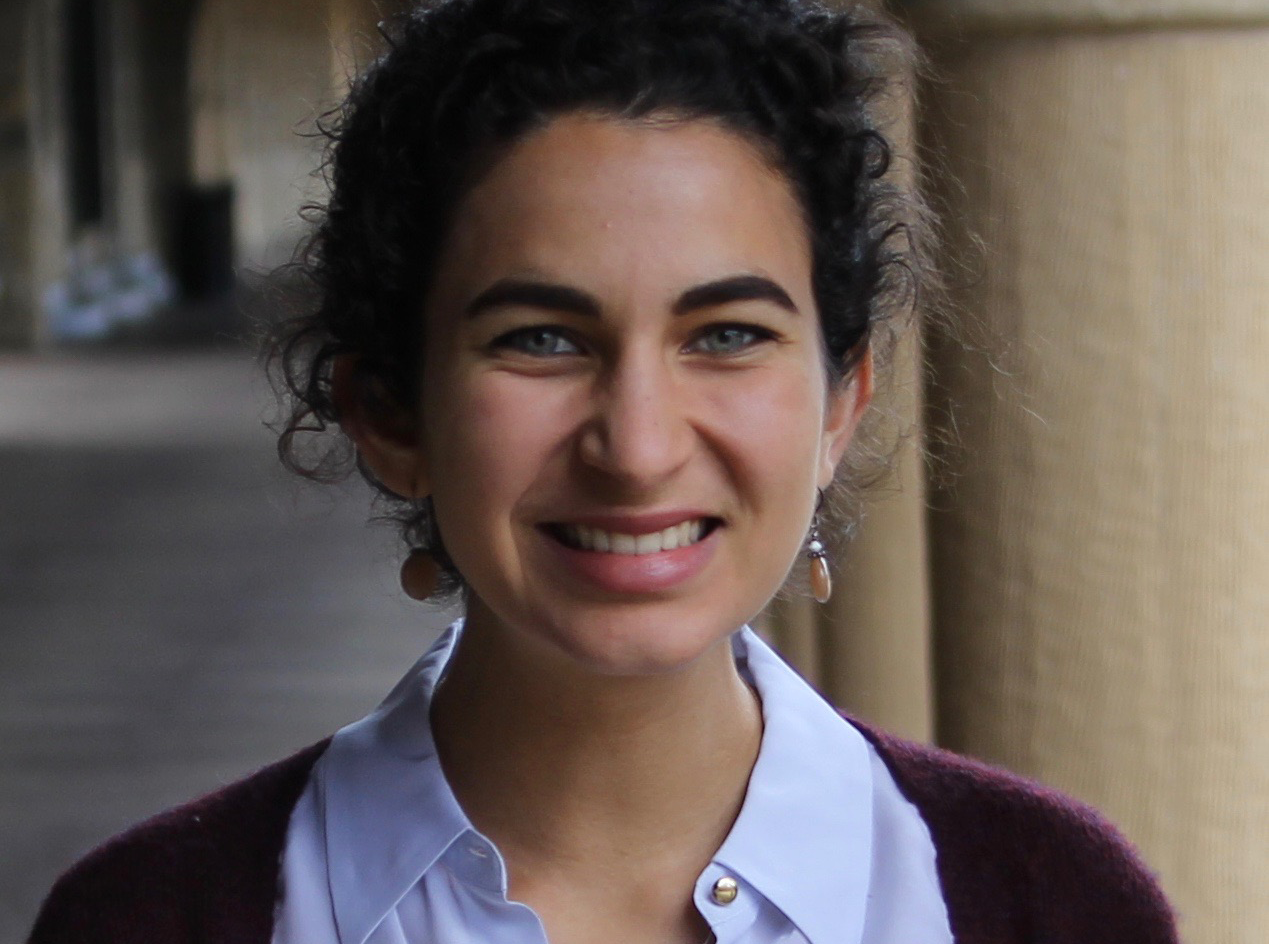
Above all, persistence
By Ryanne Bamieh, ’18 (History)
It was a Thursday morning when we got the call. My partner and I had been investigating the case for the past two weeks, and we still didn’t have anything useable. Our client was accused of a hit-and-run, just in front of a small apartment building in a Brooklyn neighborhood. We’d been trying to reach the owner of the apartment building for the past two weeks, hoping that we’d be able to obtain video footage of the crash. Our quest had taken us to a hospital in the Bronx, to a corporate building in Manhattan, and on many trips from our office in downtown Brooklyn to the scene of the alleged crime, as we tried to track down the video.

Eventually, someone had passed our phone number to the building super, who had gotten permission from his boss to call us and give us access to the footage. It was only when we got back to our office that we were able to watch the video and confirm exactly what our client told us: that another man had been driving the car.
As an intern at Brooklyn Defender Services (BDS), I was able to learn about my dream career while also helping to defend our clients—indigent men and women of Brooklyn who had been accused of a variety of crimes. I interviewed witnesses, photographed scenes, and became very familiar with standard video surveillance protocol. Through it all, I learned that the most important quality of an investigator was persistence. It could be endlessly frustrating to follow up promising leads, only to discover that they were dead ends. Yet, the times when our work paid off made all the fruitless calls and long trips around the city worth it.
I know the path to becoming a public defender will be difficult, but if I’ve learned anything from my time at BDS, it’s that I’m persistent, and persistence can carry me along even the most difficult paths.
Ryanne is part of the 2017-18 cohort of the Public Service Honor Society, a leadership program for seniors run by the Haas Center. Her experience with BDS was through a Cardinal Quarter summer fellowship.
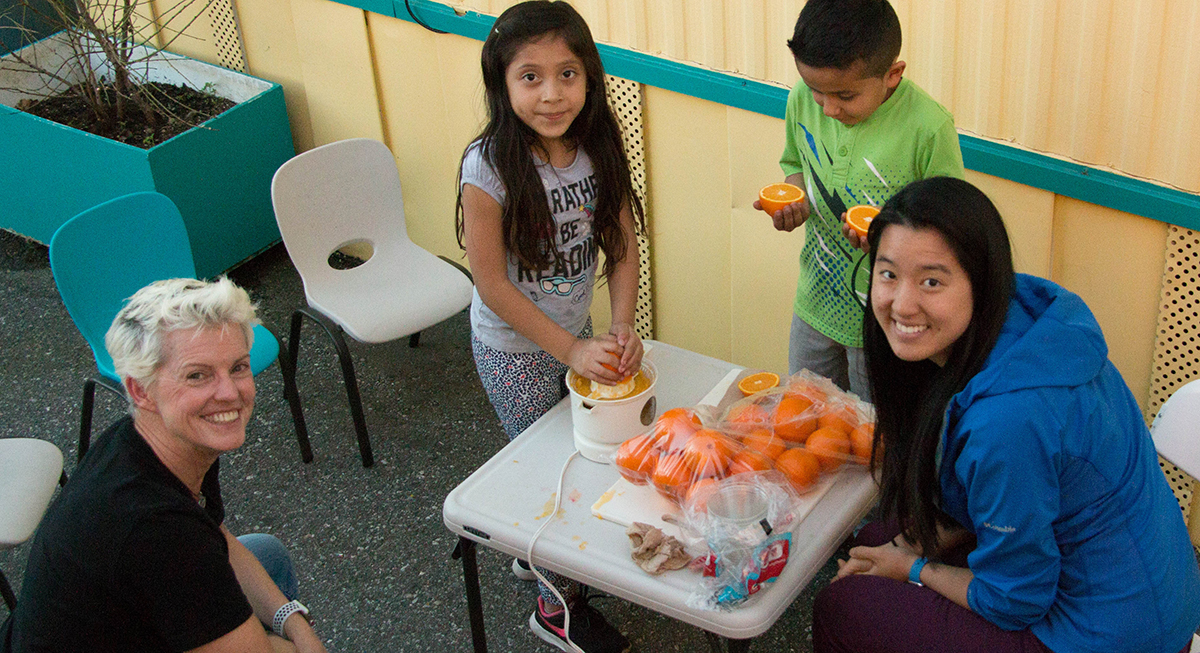
Bridging Palo Alto’s education gap
By Ezra Yoseph, ’21 (biology/neurobiology)
Following years of negotiations between its previous owner and Santa Clara County, Buena Vista Mobile Park survives as one of the few remaining options for affordable housing in Palo Alto. Unfortunately, the 400+ residents continue to be stricken by the harsh ramifications of educational inequity. Noticing that there were several academic outreach programs offered to secondary students but a lack of programs servicing elementary school students, Dr. Deborah Farrington launched Buena Vista’s first homework club for younger children and enlisted Stanford University students as supporters and tutors.

My first quarter with the Buena Vista Homework Club (BVHC), through a Cardinal Course, Well-Being for Immigrant Children and Youth, instilled in me the importance of getting to know students and making time for conversation in between tutoring sessions. Understanding the backgrounds my students came from allowed me to come up with nuanced and effective goals for each meeting. Simply put, access to educational resources at home is far from uniform, which inevitably leads to an immense number of low-income students getting left behind very early on. As we look forward to mitigating Palo Alto’s education gap, we must sustain and promote programs like BVHC that support learning at a young age as opposed to waiting until it’s too late.

Let’s talk
By Katie Wullert, PhD candidate
The growing political divide in this country is news to no one, but we are often able to avoid the ramifications of this in our private lives by surrounding ourselves with like-minded people and inhabiting ideologically homogeneous social spaces online and in the real world. Every year on the fourth Thursday in November, however, it becomes hard to prevent the political divide from intruding into our private lives as liberal nieces go toe-to-toe with conservative uncles and conservative cousins face off against progressive aunts. The Thanksgiving dinner table has become a notorious place of political contention. This political showdown is not playing out in Washington or on Fox or MSNBC, but in our own homes. What do we do about this contention when it is finally right in front of our faces? If we follow the model of Saturday Night Live, perhaps we play Adele to soothe the room and prevent any conflict from escalating. But what if, instead, we dug into that tension?
That was the premise behind a series of three, hour-long dinner conversations held at the Haas Center this past February. Students with differing political perspectives were brought together to discuss issues that we often do not talk about across political divides. The conversations covered the American Dream, immigration, and freedom of speech vs. controlling hate speech, and students were asked to present their views thoughtfully and listen to the views of others around them. My role in this was to facilitate, provide guiding questions, make sure there was food and the room was ready, and let the conversation unfold as it did. From my perspective as an observer of each of the conversations, one theme clearly emerged: finding common ground is easier than digging into divisions.
As the participants got more comfortable with each other and with the conversations, greater disagreement did emerge, but it is hard to break down the walls of kindness that suggest we should not butt heads with others, and it is comforting to find that the conversation fit into a groove in which people can fundamentally agree. After each dialogue, students expressed their surprise at the fact that there was so much agreement. On one hand, this was a real positive. Students discovered that people they had assumed to hold one opinion actually believed something very different, and two individuals who might have been presumed to be at odds were in fact much more in alignment with each other than expected. On the other hand, the students also noted that they felt there was more there that was never fully discussed, points of contention that were never brought out fully in the open but remained under the surface as if Adele was softly singing to keep tempers in check.
 Around another dinner table, the conversations certainly might have looked very different, but the experience of this dinner table left me with one question: when we attempt to come together across political divides, what is the goal? Are we searching for agreement to remind ourselves we are all people? There’s value to that, but also the very real risk of dismissing disagreement that should not just be brushed aside and ignoring views that perhaps can never be reconciled but have immense impact on people’s lives and experiences. Are we instead looking to debate and perhaps even let our tempers flare up as we speak passionately about issues we care about? This ensures we do not ignore important divisions, but also may make us miss places where we do agree as we presume that by knowing one opinion someone has, we know every political view they hold. After watching and reflecting on these three dialogues, the best answer I could come to is that we have to start the conversation and then let it unfold as it does. That is what this group of students did; they were honest and open, and even if certain things were left unsaid, they came out having learned something and hopefully feeling readier for the next conversation and wherever that takes them.
Around another dinner table, the conversations certainly might have looked very different, but the experience of this dinner table left me with one question: when we attempt to come together across political divides, what is the goal? Are we searching for agreement to remind ourselves we are all people? There’s value to that, but also the very real risk of dismissing disagreement that should not just be brushed aside and ignoring views that perhaps can never be reconciled but have immense impact on people’s lives and experiences. Are we instead looking to debate and perhaps even let our tempers flare up as we speak passionately about issues we care about? This ensures we do not ignore important divisions, but also may make us miss places where we do agree as we presume that by knowing one opinion someone has, we know every political view they hold. After watching and reflecting on these three dialogues, the best answer I could come to is that we have to start the conversation and then let it unfold as it does. That is what this group of students did; they were honest and open, and even if certain things were left unsaid, they came out having learned something and hopefully feeling readier for the next conversation and wherever that takes them.
Katie is a third-year PhD student in sociology studying gender and labor market inequality and hopes to graduate in 2021-22. She is currently a Graduate Public Service Fellow at the Haas Center.
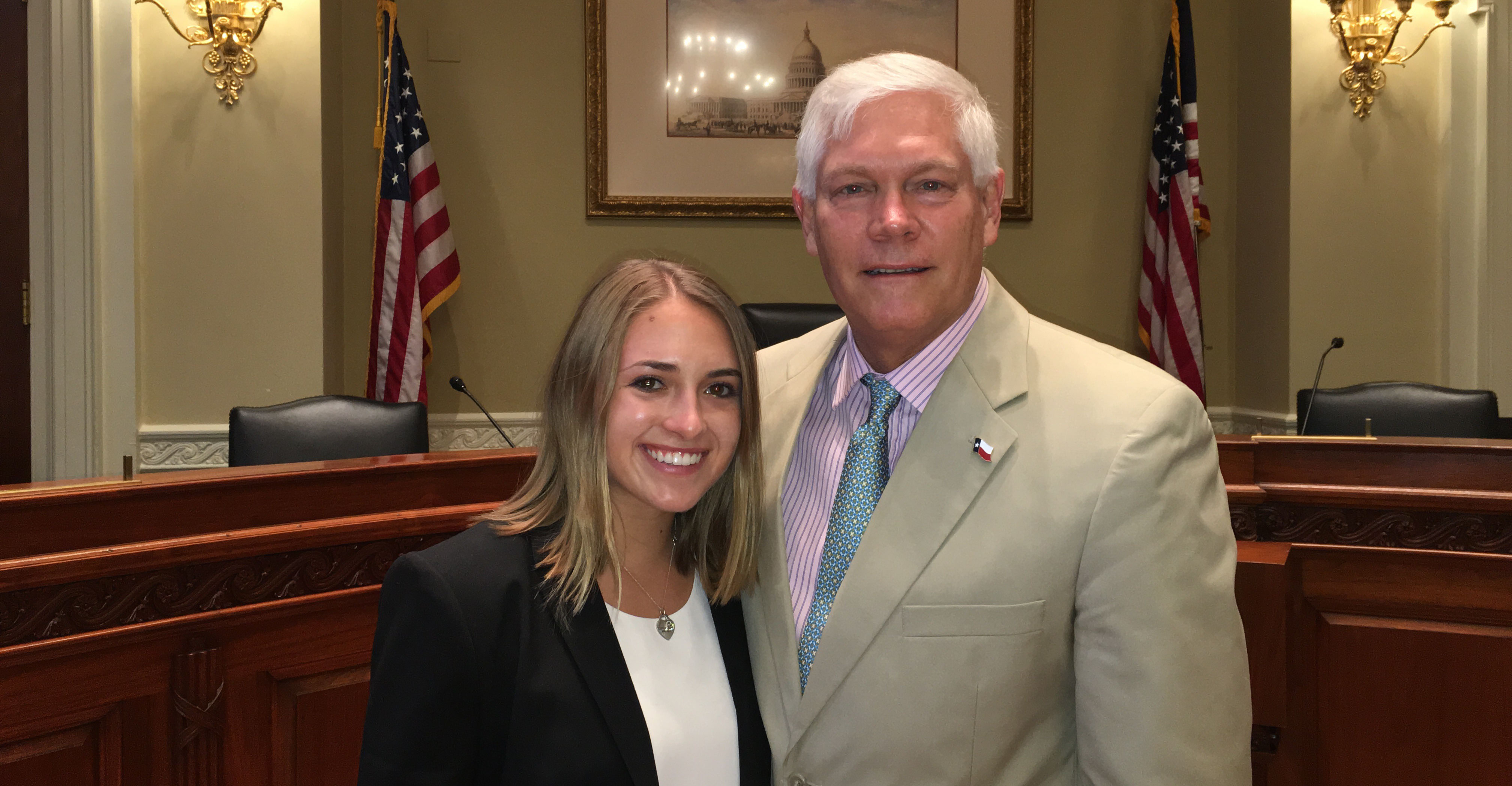
Thinking like a congressman
By Vanessa Ochavillo, ’18 (Human Biology), Cardinal Service Coordinator
Last summer, Kennedy Placek, ’18, interned at the Washington, D.C. office of Republican Congressman Pete Sessions of Dallas, Texas, an experience that she said enhanced her understanding of the political landscape beyond the San Francisco Bay Area, and the processes behind the policies that shape our lives in the United States.
“I went there to be as enriched as I could, and I felt that his office would do that for me,” Kennedy said.
When deciding where she wanted to do her Stanford in Government policy internship, Kennedy knew that she wanted to work for the head of a committee that fascinated her. Congressman Sessions chairs the Rules Committee, which oversees every piece of legislation that goes through Congress, crafts the legislation, and determines the rule that other bills will come to the House floor under. It is one of the most powerful Congressional committees.
Weeks into her internship, she earned a unique opportunity to join the Congressman’s team tasked with reviewing the 2018 National Defense Authorization Act (NDAA) and the 2018 Appropriations Act. For the NDAA alone, she researched its more than 400 amendments and summarized each one for Congressman Sessions, recommending how he should vote based on his support for other bills and his alliances with other members of Congress.
“I had to ask myself what would Pete do or what would Pete think,” she recalls. “There were some amendments that I would have personally wanted to strike down or vote ‘yes’ on, but I knew Pete wouldn’t,” she said.
Kennedy attributes her ability to work on the policy-making team to the support she received from the office staffers and the opportunity to attend congressional hearings, where she witnessed first-hand how politics play out. Though there were the occasional heated hearings, like a senate intelligence committee hearing about possible Russian interference in the 2016 U.S. presidential election, nearly all of the hearings were orderly and decisions were made.
But what struck Kennedy most from these meetings was the sight of her congressman shaking hands with Democrats. “When I saw that, I thought, ‘That should be the face of U.S. politics, someone reaching across the aisle,’” she said.
When she was not researching or sitting in on congressional hearings, she was responding to constituents’ letters and giving tours of the Capitol to those who flew in from Texas. On these three-hour tours, she interacted closely with people she said she would have never met had she not done this internship. It was fulfilling to share her passion for the U.S. Capitol and connect with families full of Texas-pride—some of whom had not ventured beyond their city borders before coming to D.C. and came from different backgrounds and political beliefs.
“What I appreciated working for a congressman not from my state or my area was that I was exposed to an area of the country that I really didn’t know much about,” she said. “I wish other people would see that and would push themselves to work outside of their ideological and political comfort zones.”
Kennedy Placek, ’18 (political science), was a 2017 Stanford in Government stipend recipient.
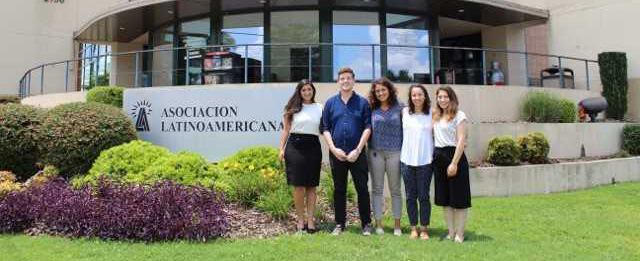
Advocacy in action
By Lydia Zemmali, ’20 (undeclared)
A Georgia legislator sits to my right. To my left, a representative from Forward.US, a nationwide advocacy organization, is opening the meeting with the current situation: DACA’s fall is imminent.
I am sitting in on a Latin American Association strategic meeting where Atlanta-based advocacy organizations, faith leaders, corporate businesses, and state legislators are discussing what to do should President Trump choose to rescind the Deferred Action for Childhood Arrivals, or DACA. They are taking their cue from the DACA recipients present in the room, asking “How can we best serve you?” A DACA recipient, an accomplished lawyer, responds, “I need to know you will do everything in your power to get between me and the ICE officer trying to deport me.”

The message is met with swift action. People write press releases, develop emergency preparedness plans, and arrange meetings with congressional representatives to work for the DREAM and American Hope Acts. In task forces, champions of social justice and businessmen work alongside each other to show the Atlanta community a united front in support of our DREAMers.
I had never witnessed collaboration of this kind. In that meeting, I had a profound realization that I want to continue be in these types of rooms—rooms in which people from many sectors of society concert their efforts, sharing their networks and expertise to bring about change.
Every single day, the Latin American Association showed me how to break down barriers for Latinos living in Atlanta. Each resume completed or Medicaid application filed is evidence of their impact. They showed me that, when run by culturally competent people with a connection to those they serve, a nonprofit can also be a community hub. My time there impressed upon me the importance of advocacy in any career path I choose, and my fellow coworkers embodied the kind of advocate I want to be: one who is responsive, culturally competent, and collaborative with different stakeholders.
Through Community Service Work-Study, Lydia worked as a Family Well-Being intern at the Latin American Association in Atlanta, Georgia.
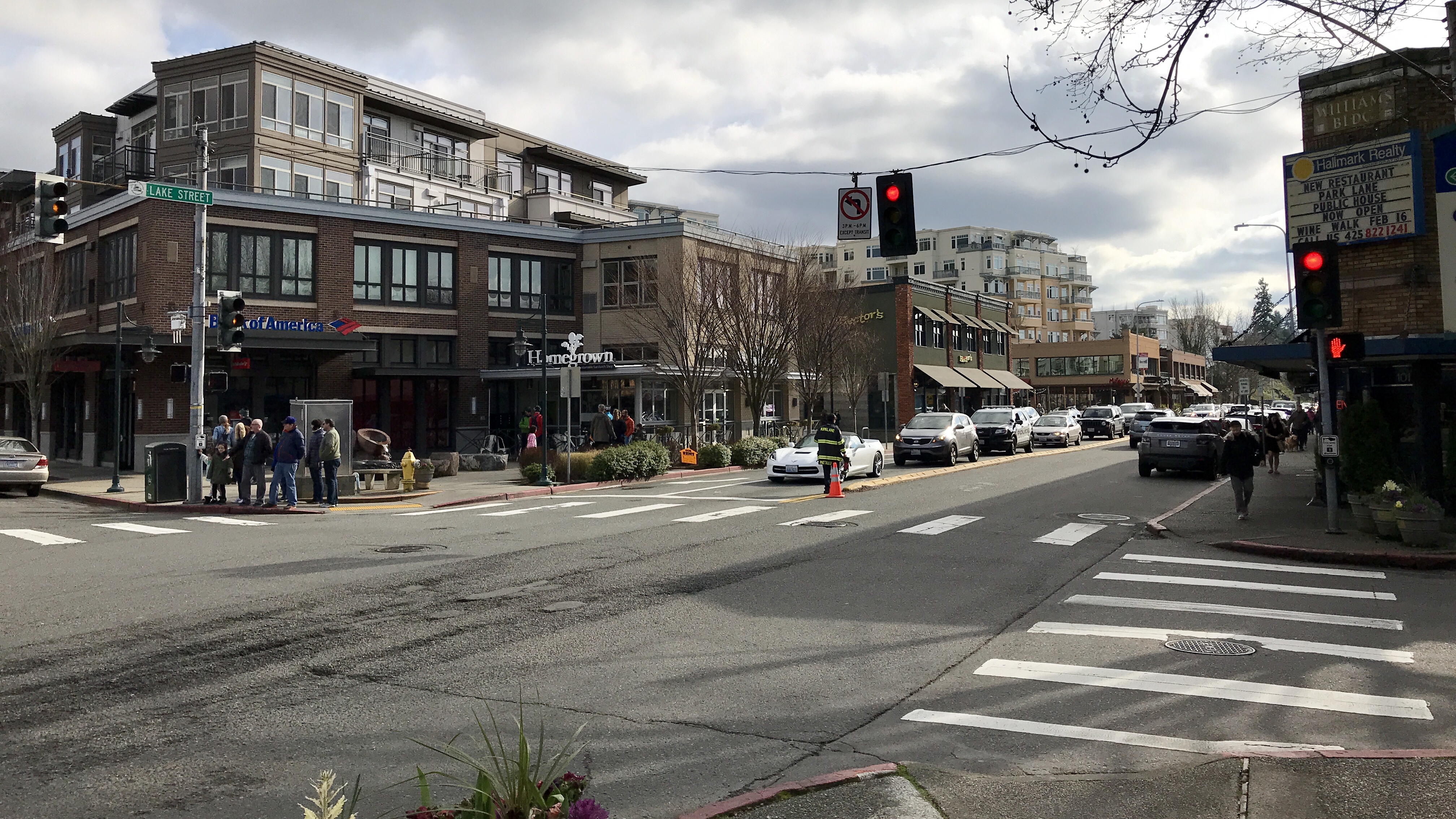
Mustard seeds
By Neal Black, ’94 (Civil/Environmental Engineering)
How small is a mustard seed, exactly?
I’m asking myself this from the dais of council chambers at the first council meeting after being sworn in. My decision to run for local office last November was inspired, in part, by my former Stanford classmate, now Senator, Cory Booker, who has instructed college graduates to “Stay faithful in things large and taking on the world, but stay faithful in those things small – because remember it’s the small things, the size of a mustard seed, that ultimately moves mountains.” As I work through tonight’s agenda, I’m wondering: When Cory thinks of a mustard seed, just how small a seed does he picture?
Tonight’s council agenda consists of a proposal to allow temporary signs on city right-of-ways (picture an A-frame sandwich board along the curb) and a proposal to up-zone four city blocks from two stories to five stories. Compared to things large, these seeds are tiny.
But wait. The community speaks, and I listen. I learn that A-frame sandwich boards are a matter of economic fairness and inclusiveness for some small business owners who can’t afford high-rent space along the main thoroughfare, some of whom are immigrants, older entrepreneurs, or just starting out. And those three extra floors? If done correctly, they’re a small part of a regional solution to affordable housing—a crisis here in the Seattle area.
Mustard seeds are tiny indeed. (I know. I Googled it.) But running for local office and working with like-minded neighbors to make small improvements to the city, ultimately, improves people’s lives.
 Neal began as a tutor for the Ravenswood-Stanford Tutoring Program (RSTP), working with students in East Palo Alto and Redwood City. He was a tutor coordinator in RSTP for two years. Neal was also a Stanford in Government fellow, interning at the Natural Resources Committee of the California State Assembly, and he attended Stanford in Washington, where he interned in the White House Office on Environmental Policy. Now a lawyer in Seattle, he has incorporated service to his community into his career and family life. He is the chair of the King County Bar Association’s Public Policy Committee, and, in November 2017, he was elected to the Houghton Community Council in Kirkland, Washington.
Neal began as a tutor for the Ravenswood-Stanford Tutoring Program (RSTP), working with students in East Palo Alto and Redwood City. He was a tutor coordinator in RSTP for two years. Neal was also a Stanford in Government fellow, interning at the Natural Resources Committee of the California State Assembly, and he attended Stanford in Washington, where he interned in the White House Office on Environmental Policy. Now a lawyer in Seattle, he has incorporated service to his community into his career and family life. He is the chair of the King County Bar Association’s Public Policy Committee, and, in November 2017, he was elected to the Houghton Community Council in Kirkland, Washington.
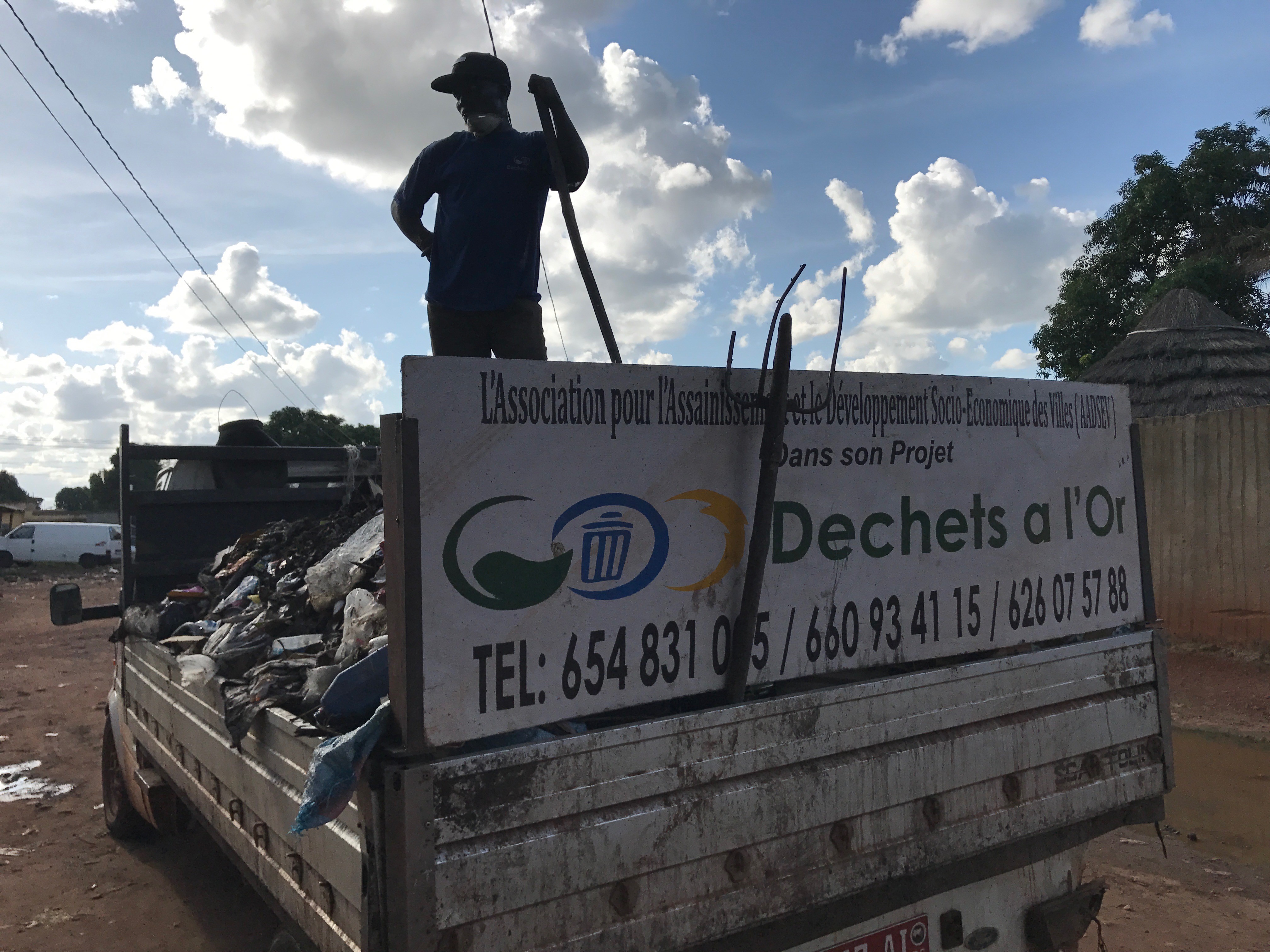
Cleaning things up at the office
By Vanessa Ochavillo, ’18 (Human Biology), Cardinal Service Coordinator
“Imagine a couple of guys and some garbage cans,” Cameron began.
This is Dechets à l’Or—or “Garbage to Gold” in English—an environmental startup in Guinea that collects local people’s trash.
Every morning, garbage collectors go into the neighborhoods in the city of Kan Kan, trucks bumbling down pothole-ridden roads, providing a service that locals have long felt that the country did not adequately provide.
Cameron Woods, ’20, sometimes joined the trash collectors. Others times, he accompanied the fee collectors as they went door to door, requesting payments. On these collection trips, Cameron filled out the paperwork, quietly following along with his elementary French and what little he had learned of Malinke, the local Guinean dialect.
He spent most of his time playing observer, which proved to be appropriate for his official role as “staff support.” After weeks of learning the organization’s operations, when he proposed changes that organized customer data for easier analysis, he hoped this would make work simpler for the staff.
“The best moments would be when someone would come up with an idea on their own of how to collect data, and I would help them do that,” he said.
More than process improvement, however, he wanted to understand the people. He spent weekends and lunches with coworkers to get to know them. During collection rounds, they would play language games, where he shared English phrases in exchange for Malinke.
A film fanatic with a particular interest in the African diaspora, being an observer suited Cameron well. And the internship reaffirmed his pursuit in both areas.
Musing about a career in film, he can “literally picture how a Netflix documentary on Dechets à l’Or could really open people’s mind to the crisis of waste management.”
 “We are visual creatures. We respond so strongly to stories and to emotion when you put all those things together—the music, strong visuals, stories, characters. They hit you in a certain way that will get you to care, to care about other people’s struggle, other people’s joy,” he said.
“We are visual creatures. We respond so strongly to stories and to emotion when you put all those things together—the music, strong visuals, stories, characters. They hit you in a certain way that will get you to care, to care about other people’s struggle, other people’s joy,” he said.
One day, while on their usual collection routes, he and his coworkers got to talking about the roads, and they asked him if the streets in America were like the streets in Kan Kan.
“I had to explain the nuances of a society that they were completely unfamiliar with,” he said. “On a daily basis, I was filling in the blanks of their worldview while they were simultaneously filling in mine.”
Cameron wants to return to Africa. Maybe next time, he will come with a camera.
Cameron Woods, ’20 (African and African American Studies), was a 2017 African Service Fellow.
